Related Research Articles
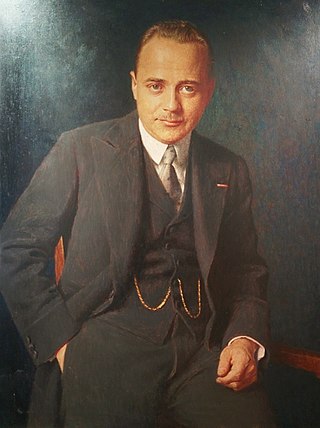
Engelbert Dolfuss was an Austrian politician who served as Chancellor and Dictator of Austria between 1932 and 1934. Having served as Minister for Forests and Agriculture, he ascended to Federal Chancellor in 1932 in the midst of a crisis for the conservative government. This crisis culminated in the self-elimination of the Austrian Parliament, a coup sparked by the resignation of the presiding officers of the National Council. Suppressing the Socialist movement in the Austrian Civil War and later banning the Austrian Nazi Party, he cemented the rule of Austrofascism through the First of May Constitution in 1934. Later that year, Dollfuss was assassinated as part of a failed coup attempt by Nazi agents. His successor Kurt Schuschnigg maintained the regime until Adolf Hitler's Anschluss in 1938.
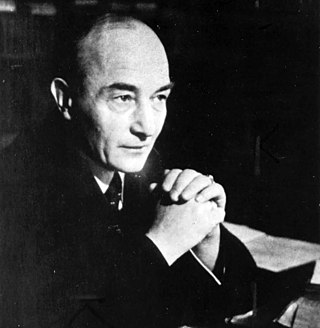
Robert Musil was an Austrian philosophical writer. His unfinished novel, The Man Without Qualities, is generally considered to be one of the most important and influential modernist novels.
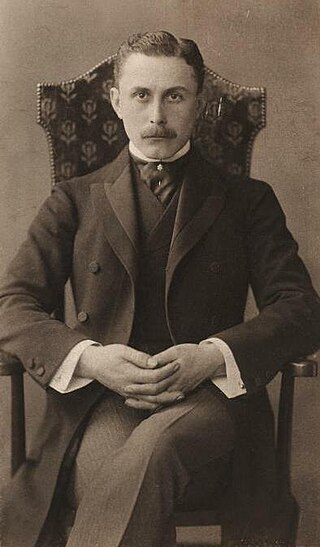
Adolf Franz Karl Viktor Maria Loos was an Austrian and Czechoslovak architect, influential European theorist, and a polemicist of modern architecture. He was inspired by modernism and a widely-known critic of the Art Nouveau movement. His controversial views and literary contributions sparked the establishment of the Vienna Secession movement and postmodernism.
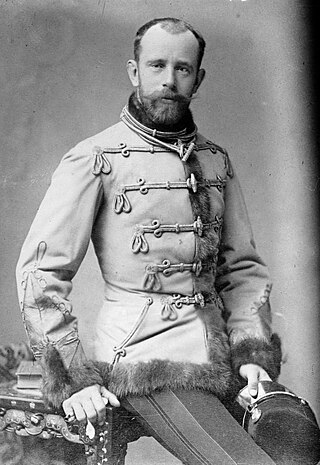
Rudolf, Crown Prince of Austria was the only son and third child of Emperor Franz Joseph I of Austria and Duchess Elisabeth of Bavaria (Sisi). He was heir apparent to the imperial throne of the Austro-Hungarian Empire from birth. In 1889, he died in a suicide pact with his mistress Baroness Mary Vetsera at the Mayerling hunting lodge. The ensuing scandal made international headlines.

Mürzzuschlag is a town in northeastern Styria, Austria, the capital of the former Mürzzuschlag District. It is located on the Mürz river near the Semmering Pass, the border with the state of Lower Austria, about 85 km (53 mi) southwest of Vienna. The population is 8,684. Originally an industrial area, the nearby mountains are today a popular ski resort.

Julius Wagner-Jauregg was an Austrian physician, who won the Nobel Prize in Physiology or Medicine in 1927, and is the first psychiatrist to have done so. His Nobel award was "for his discovery of the therapeutic value of malaria inoculation in the treatment of dementia paralytica".

Albert II, known as the Wise or the Lame, a member of the House of Habsburg, was duke of Austria and Styria from 1330, as well as duke of Carinthia and margrave of Carniola from 1335 until his death.
Lorenz Böhler was an Austrian physician and surgeon.
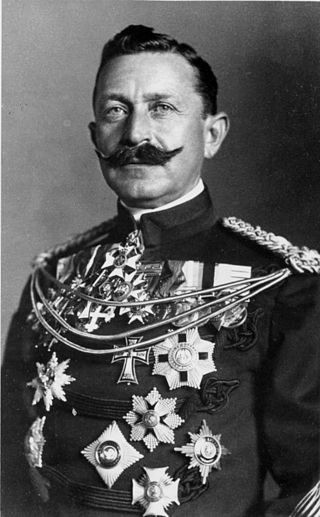
Major-General Rudolf Anton Carl Freiherr von Slatin, Geh. Rat, was an Anglo-Austrian soldier and administrator in Sudan.

Baron Cajetan von Felder was an Austrian lawyer, entomologist and liberal politician. He served as mayor of Vienna from 1868 to 1878.

Félix Pollaczek was an Austrian-French engineer and mathematician, known for numerous contributions to number theory, mathematical analysis, mathematical physics and probability theory. He is best known for the Pollaczek–Khinchine formula in queueing theory (1930), and the Meixner-Pollaczek polynomials.
Kurt Rudolf Fischer was a Jewish-Austrian philosopher who emigrated to Brno, Czechoslovakia, in 1938 and to Shanghai in 1940. He was born in Vienna.

Dr Ernst Weiss was a German-speaking Austrian physician and author of Jewish descent. He is the author of Ich, der Augenzeuge, a novel dealing with the Hitler period.
Hermann Junker was a German archaeologist best known for his discovery of the Merimde-Benisalam site in the West Nile Delta in Lower Egypt in 1928.
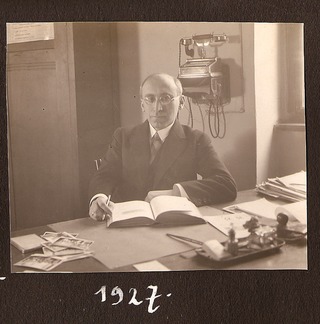
Hugo Iltis was a Czech-American biologist.

Rudolph Krejci was a Czechoslovak-American philosopher and professor, who was the founder of the Philosophy and Humanities Programs at the University of Alaska Fairbanks, and founder and first dean of the university's College of Arts and Sciences in 1975. In 1997, after 37 years at the university, Krejci became Professor Emeritus of Philosophy and Humanities.
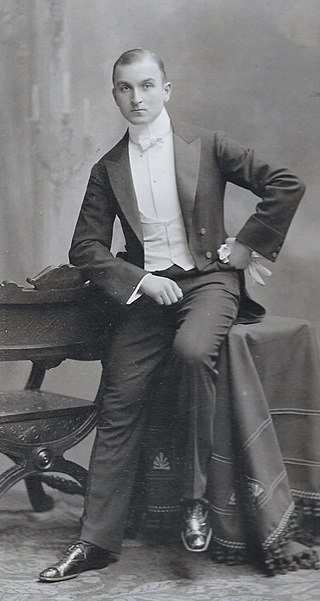
Ernst Königsgarten, also known as Arnošt Königsgarten was an Austrian businessman and fencer. He was the youngest member of the Austrian team in the Olympic 1906 Intercalated Games in Athens in four competitions, finishing sixth with the sabre. In 1907, he was one of the co-founders of the Wiener Fechtklub , trained in the fencing academy of Luigi Della Santa and sat on the board of the Austrian Fencing Association and the Wiener AC. He fled Vienna after the Anschluss and returned to his hometown of Brno, but was deported by the Nazis and died in Theresienstadt.

Ernst Welisch was an Austrian playwright and theatre director. He is primarily known for the numerous operetta librettos that he wrote for composers such as Leo Fall, Jean Gilbert, Emmerich Kálmán, and Ralph Benatzky. Welisch was born in Vienna, but spent most of his career in Berlin. In the 1930s he returned to Vienna where he died shortly before the premiere of his last work, Venedig in Wien.
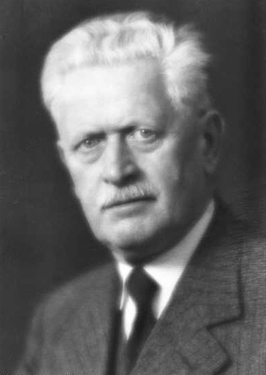
Arthur Schüller was an Austrian medical doctor who served as professor at Vienna University and was the founder of the discipline of neuroradiology. He is credited with coining the term "Neuro-Röntgenologie" and he contributed particularly to three neurosurgical procedures; antero-cordotomy, cisternal hydrocephalic drainage and the transsphenoidal approach to pituitary tumours, and is associated with three bone diseases; the Hand–Schüller–Christian disease, osteoporosis circumscripta and cephalohaematoma deformans.
Der Kampf was a monthly political magazine published in the period between 1907 and 1938. It was first headquartered in Vienna and then in Prague and Brno. It was affiliated with the Austrian Social Democratic Party (SDAP), and its subtitle was Sozialdemokratische Monatsschrift.
References
- 1 2 3 Wlassak, Rudolf at AEIOU Encyclopedia
- 1 2 Thibaut - Zycha, Volume 10 by K. G. Saur Verlag GmbH & Company, Walter De Gruyter Incorporated
- ↑ WorldCat Identities published works